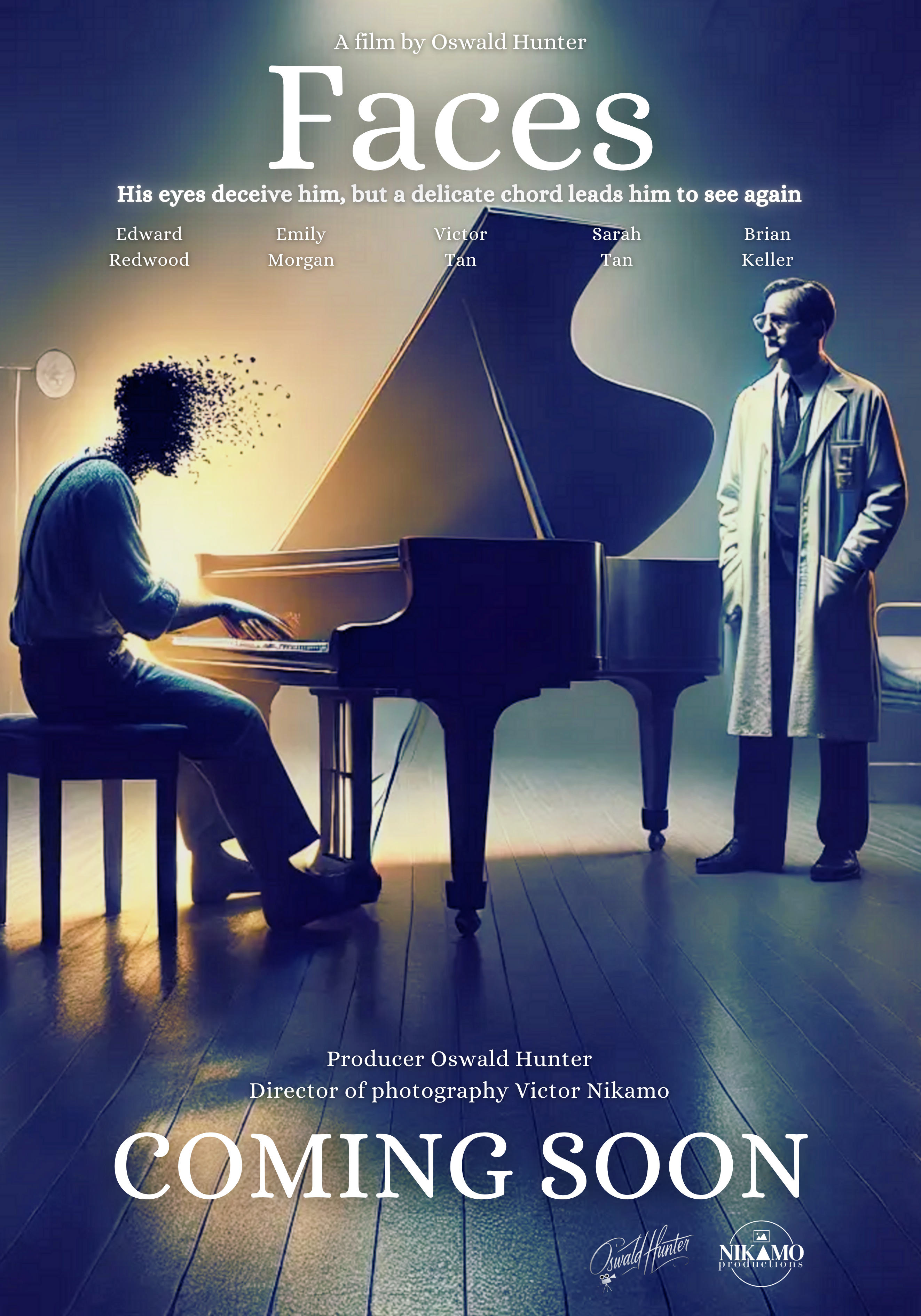THE STAGE 32 LOGLINES
Post your loglines. Get and give feedback.

FACES (SHORTFILM)
By Oswald Hunter
A neurologist in a 1980s hospital tests an unproven therapy on a once-renowned pianist suffering from visual agnosia, using music as a bridge to memory—risking both their careers in a desperate attempt to restore his identity.
SYNOPSIS:
Set in a bustling 1980s hospital, Faces follows Dr. Edward Redwood, an introverted
neurologist with a background in research who’s determined to prove his innovative methods
in a real-world setting. On his first day, Redwood encounters Victor Tan, a once-renowned
concert pianist now suffering from visual agnosia, unable to recognize faces or ordinary
objects. Victor’s wife, Sarah, is torn between hope and heartbreak, as each day reminds her
that her husband can see but cannot truly perceive her anymore.
Undeterred by Dr. Keller’s budgetary constraints and skepticism, Redwood devises a
melodic therapy approach. Teaming with the compassionate Nurse Morgan, he introduces
short, personalized musical motifs for Victor to associate with key people and objects, hoping
to bypass his impaired visual pathways. Early sparks of progress renew Victor’s and Sarah’s
hope, but unforeseen setbacks—particularly a jarring meltdown when Victor fails to
recognize Sarah—threaten Redwood’s entire effort. Under mounting pressure from Keller to
deliver measurable results, Redwood refines the therapy into smaller “micro-sessions,”
carefully balancing the need for accelerated progress with the risk of overloading Victor.
Despite lingering uncertainties and no promise of a complete cure, Redwood’s experimental
method yields tangible improvements: Victor identifies simple objects and, crucially,
reestablishes emotional connections through musical cues. In the climactic scene, Victor
performs a gentle piano piece for a modest hospital audience—still prone to moments of
confusion, yet profoundly changed by the melodic therapy. The film ends on a bittersweet
note, with Victor’s regained sense of identity resonating through the keys, and Redwood,
Sarah, and Morgan accepting that progress, not perfection, is what truly matters.

Rated this logline